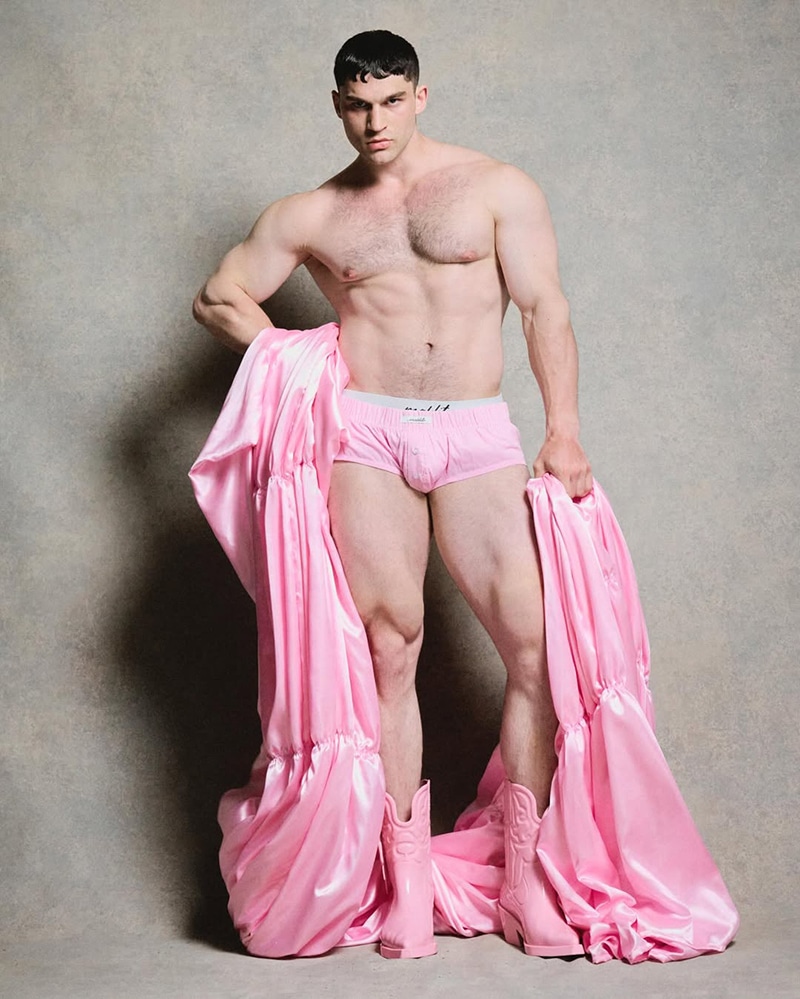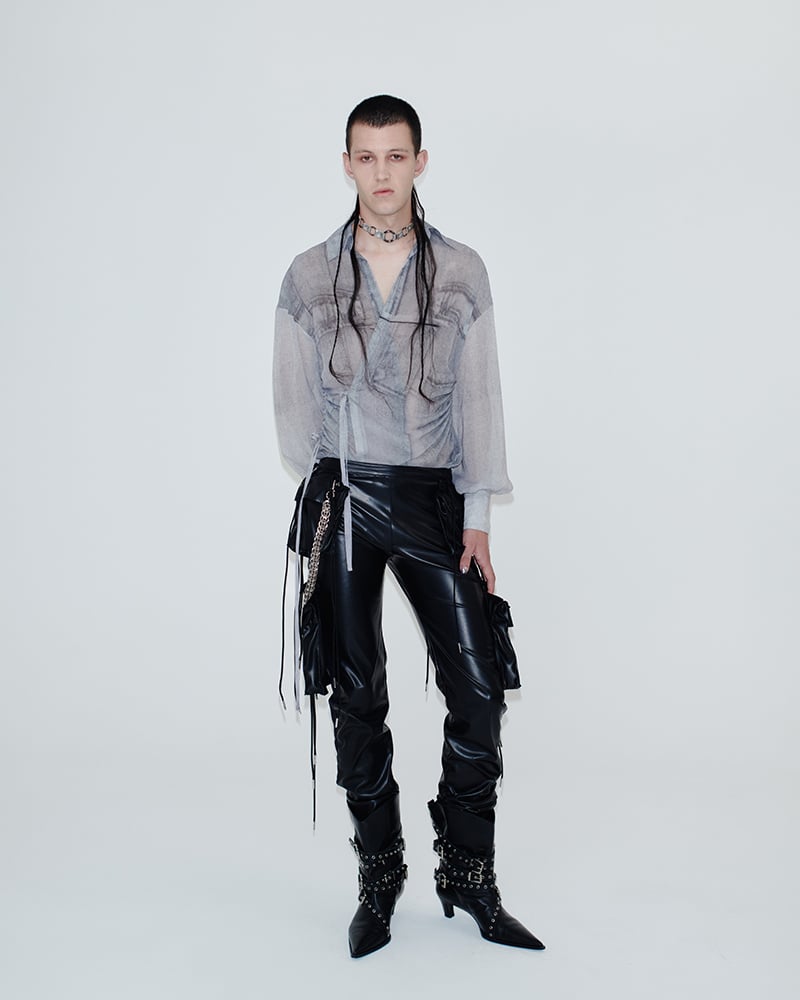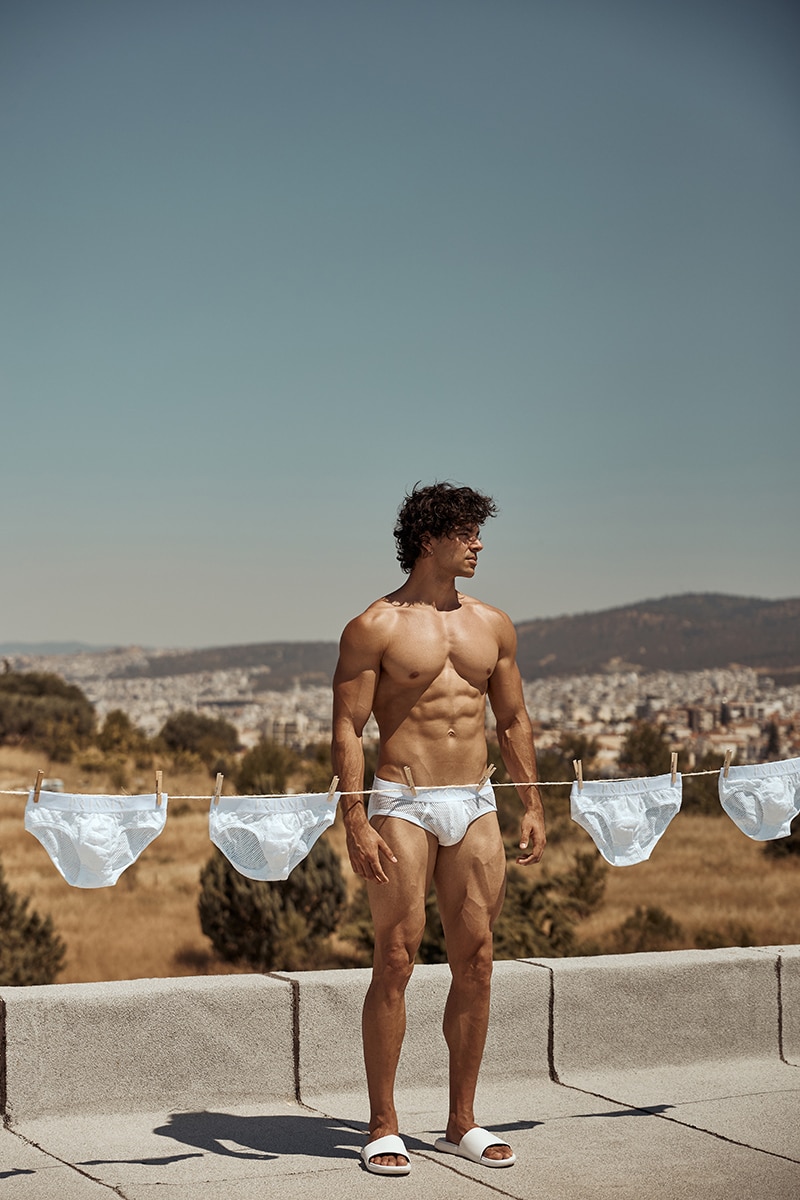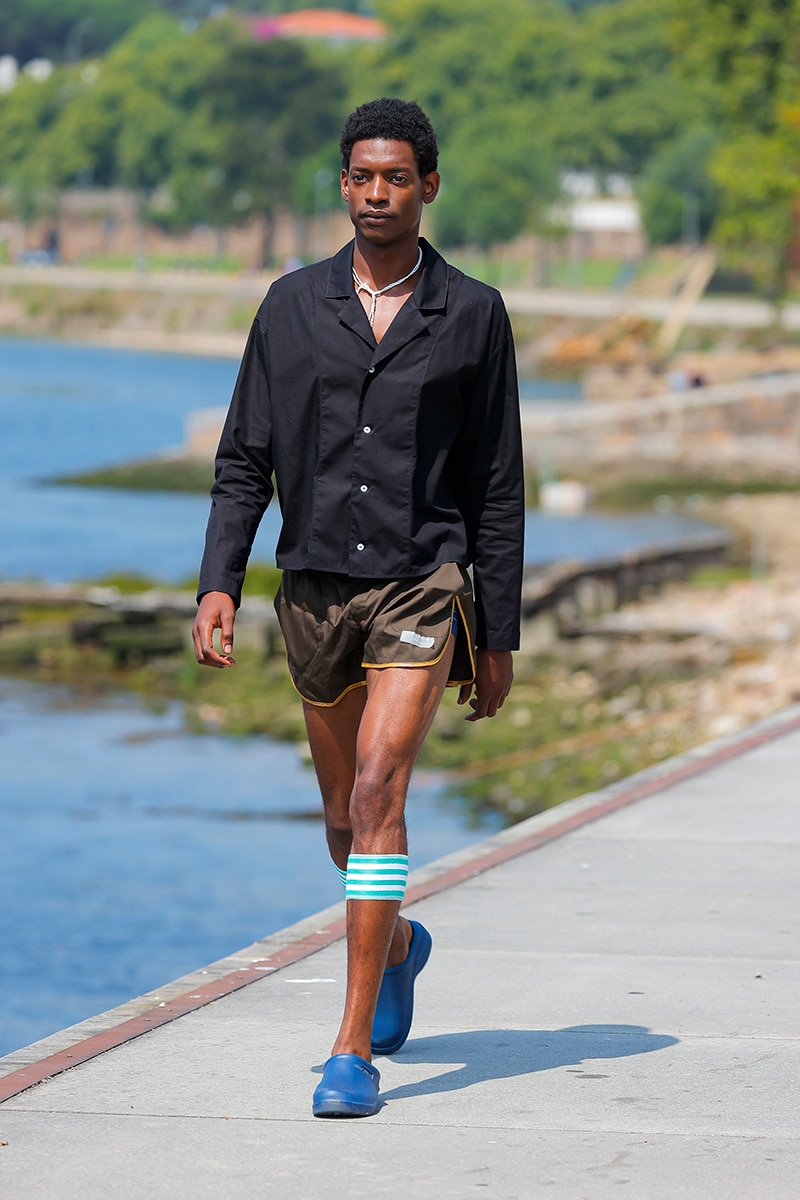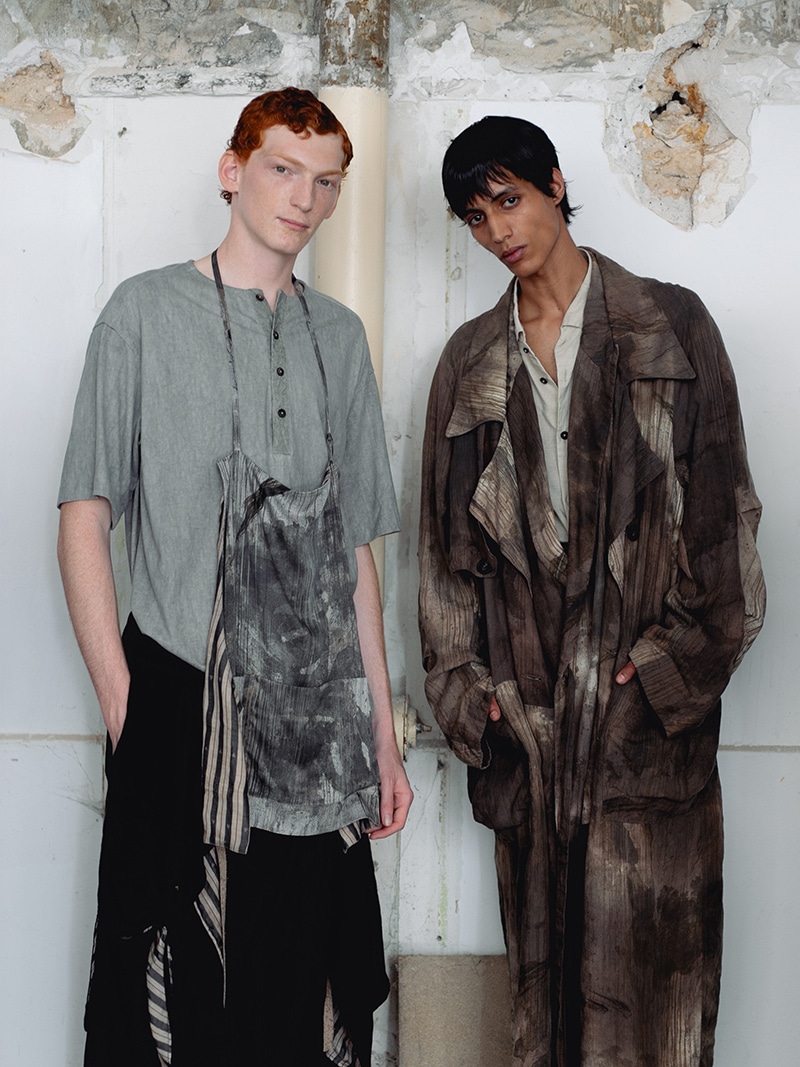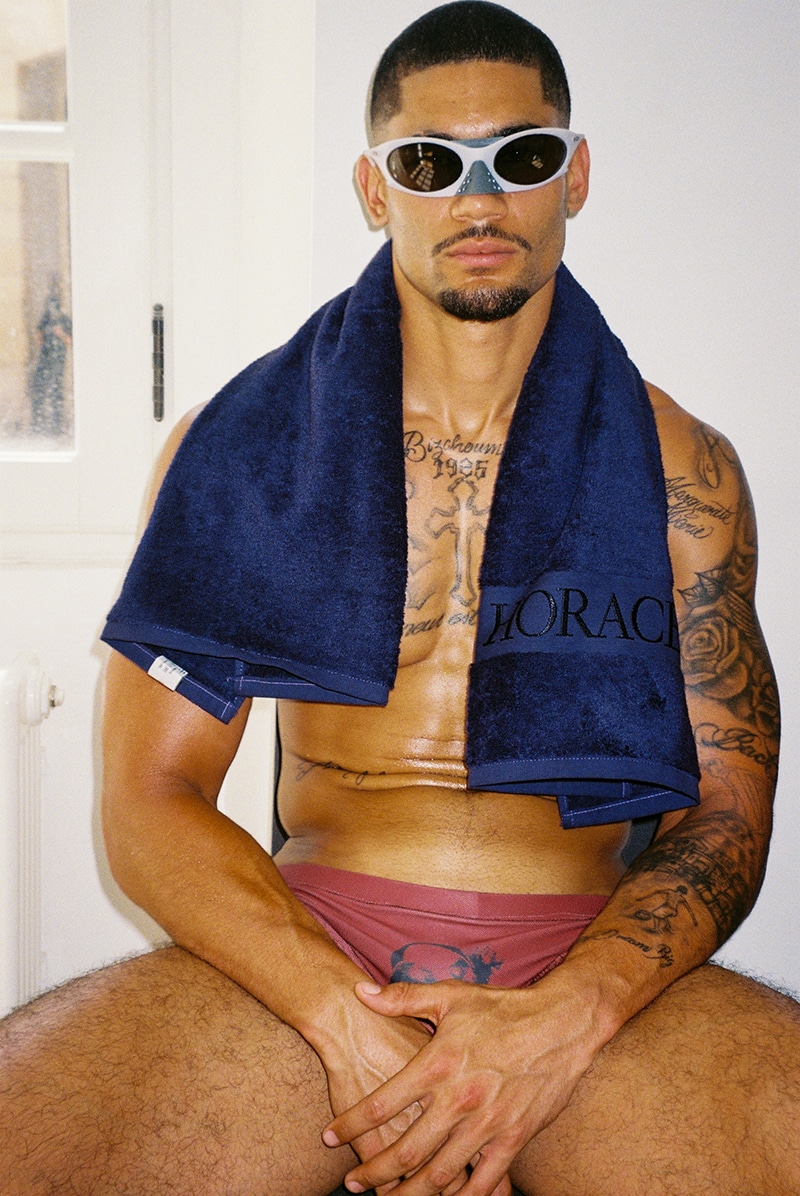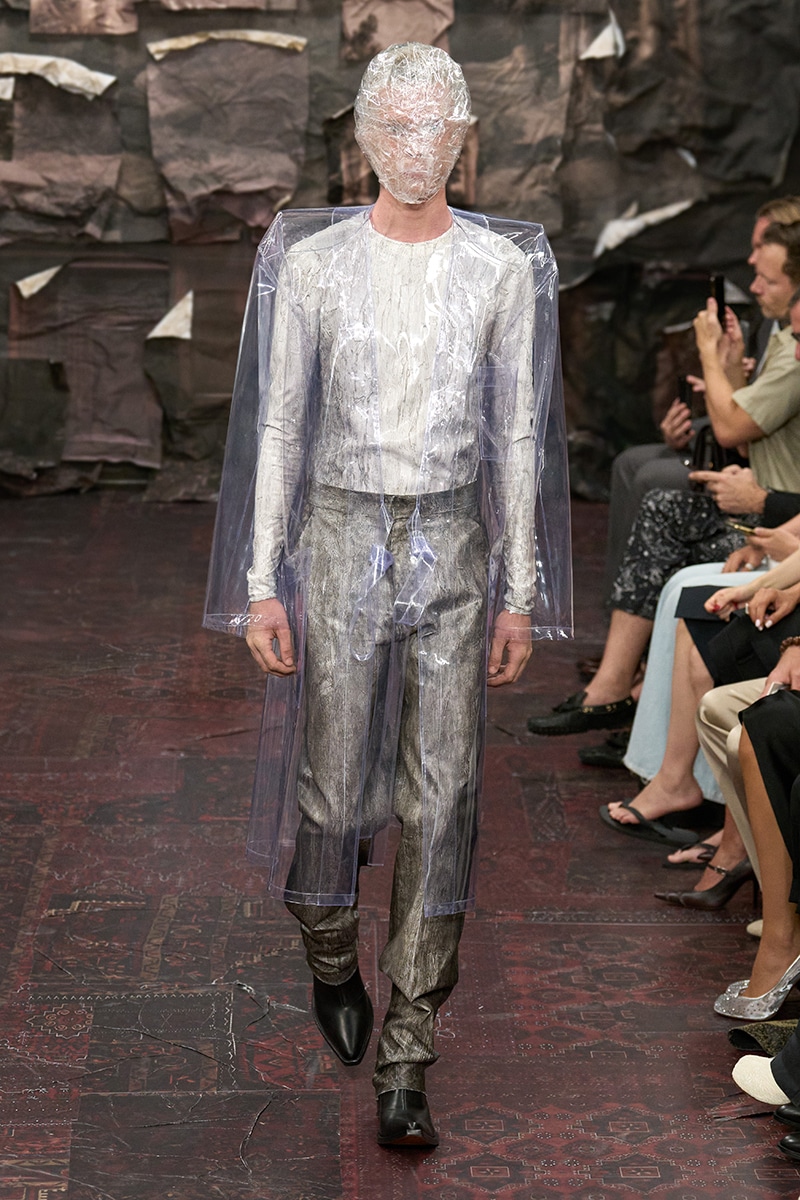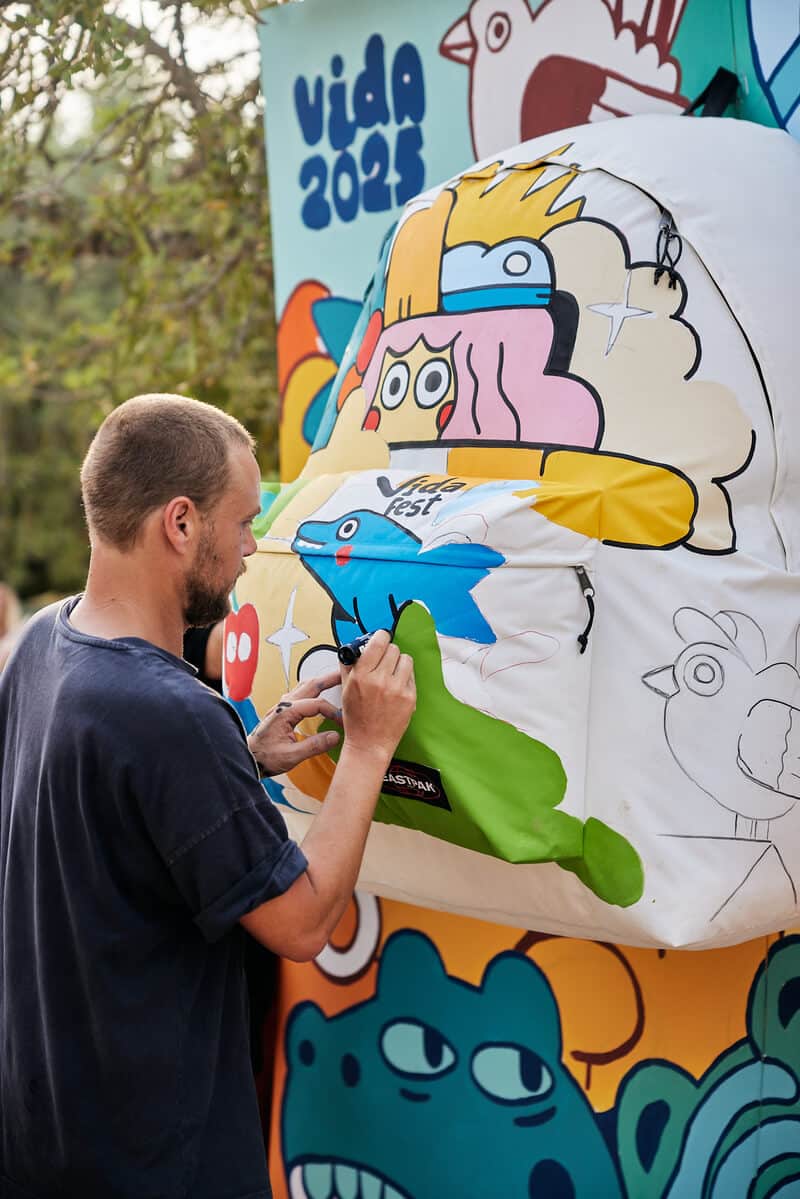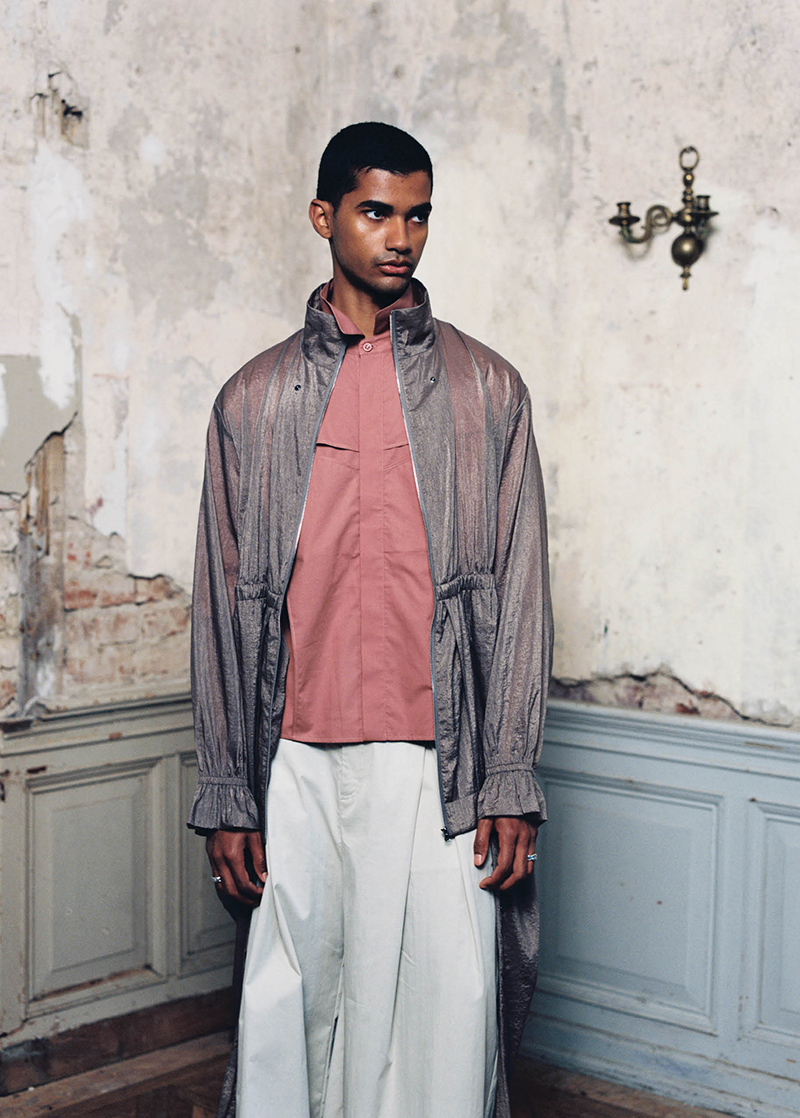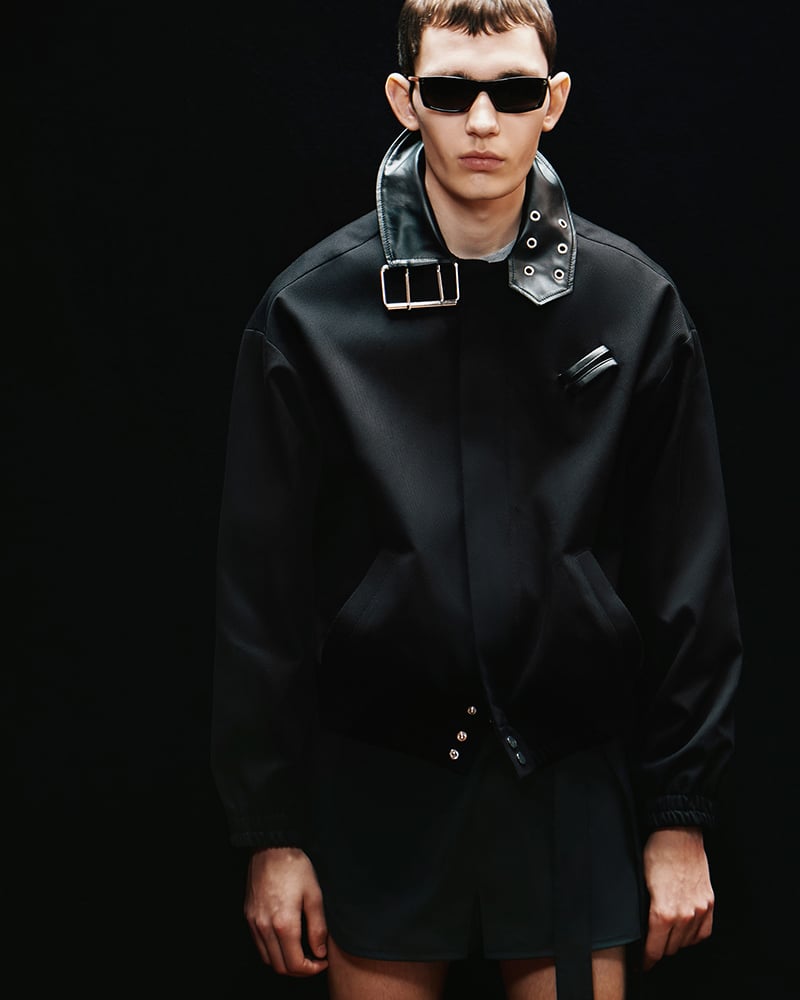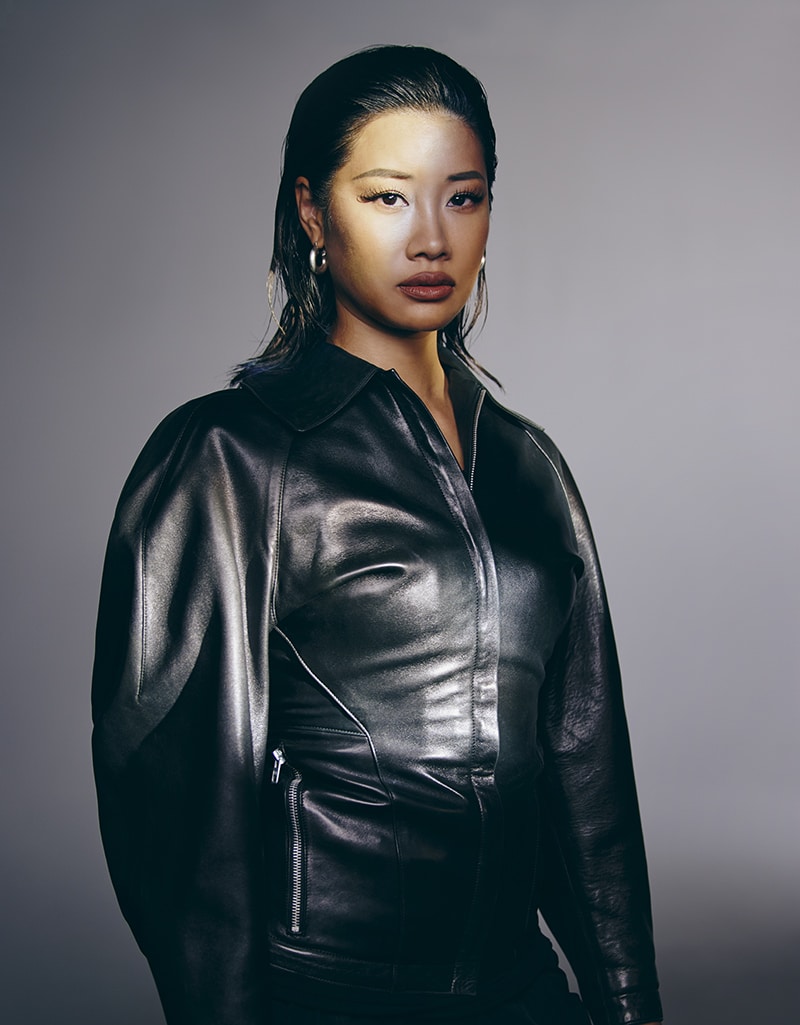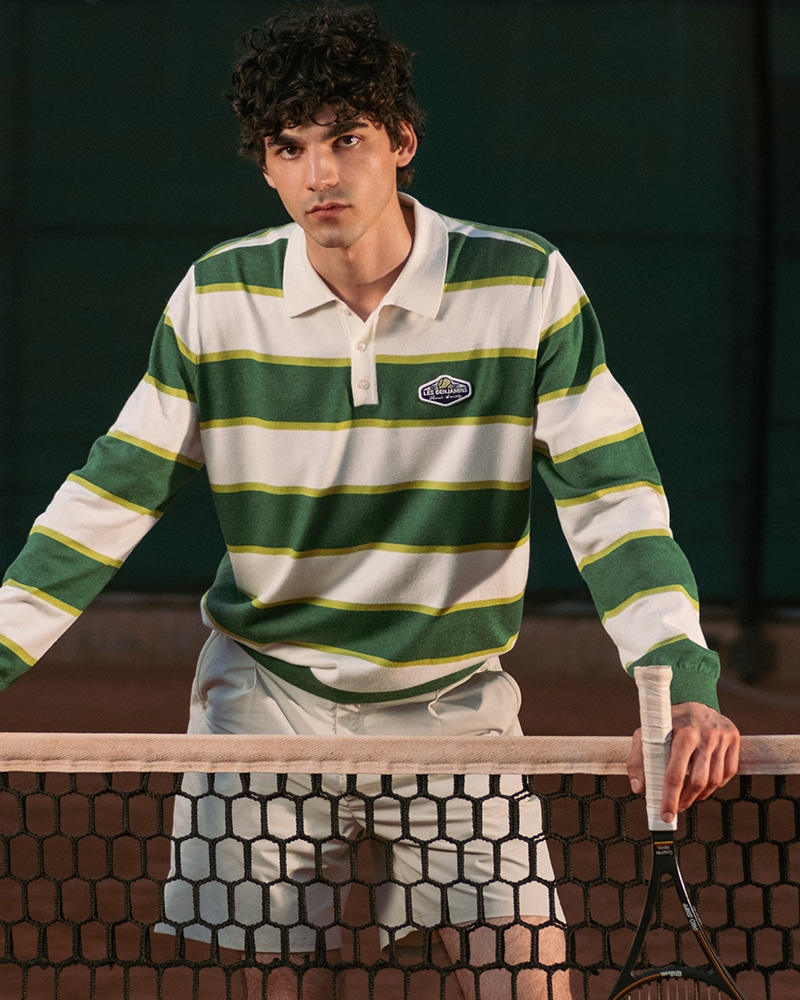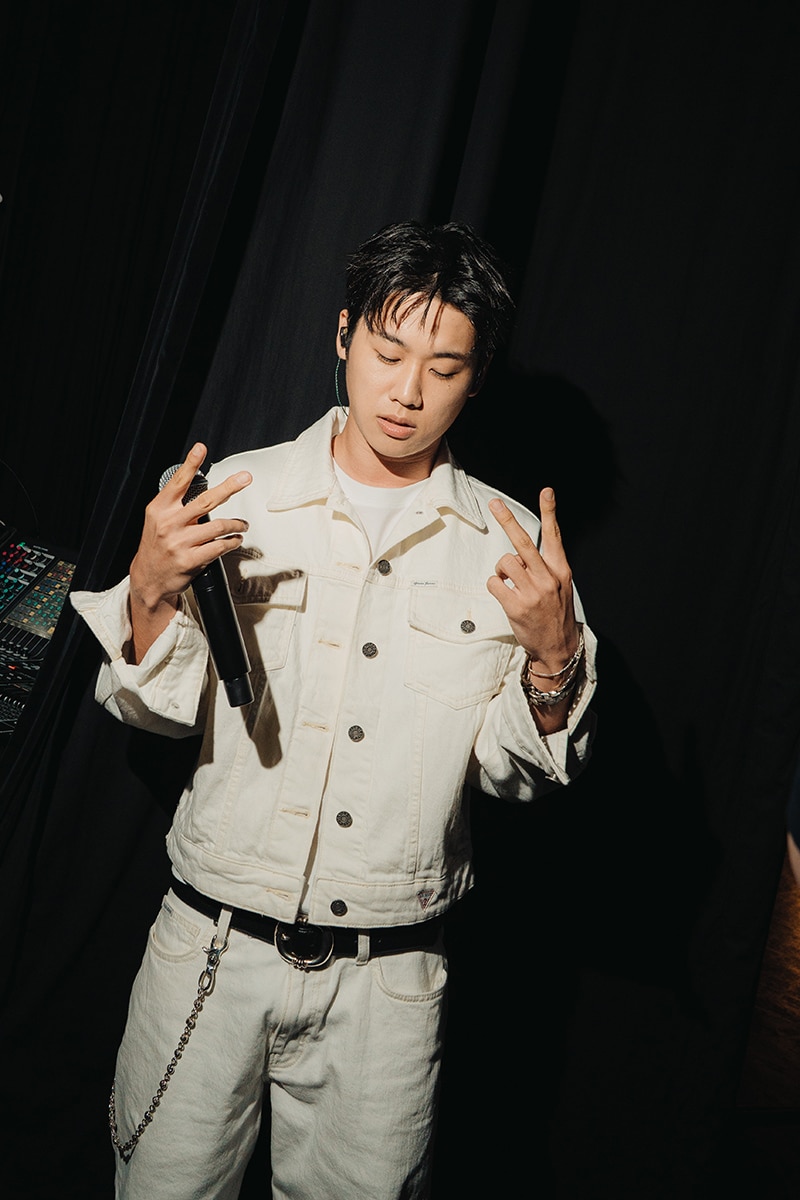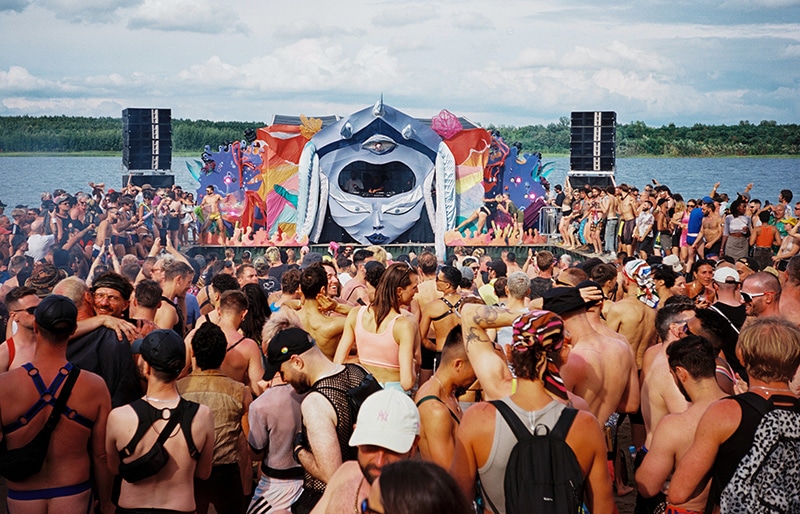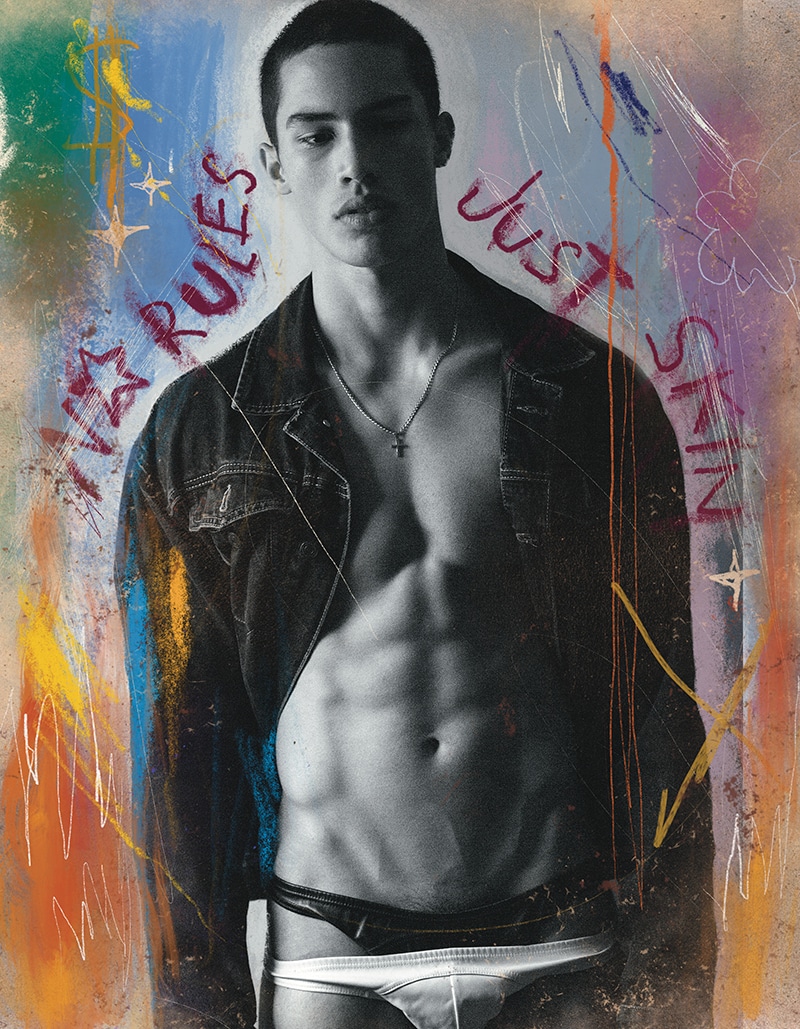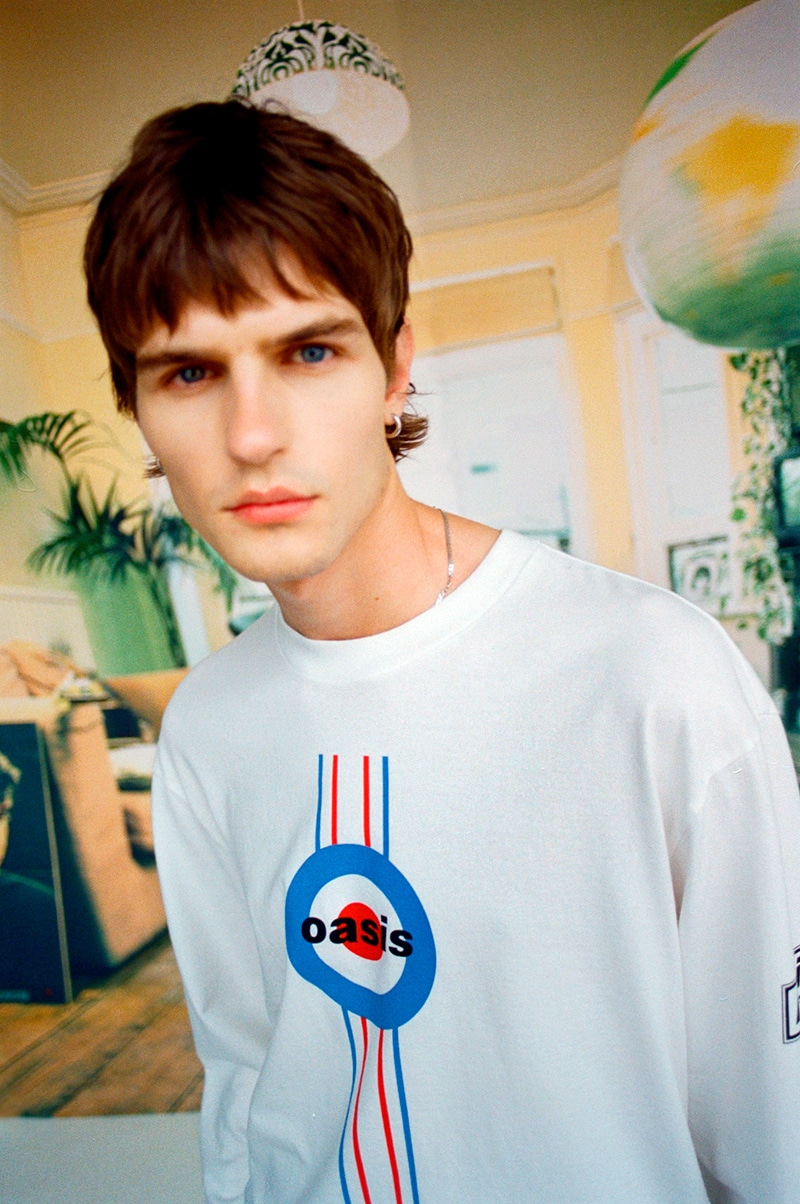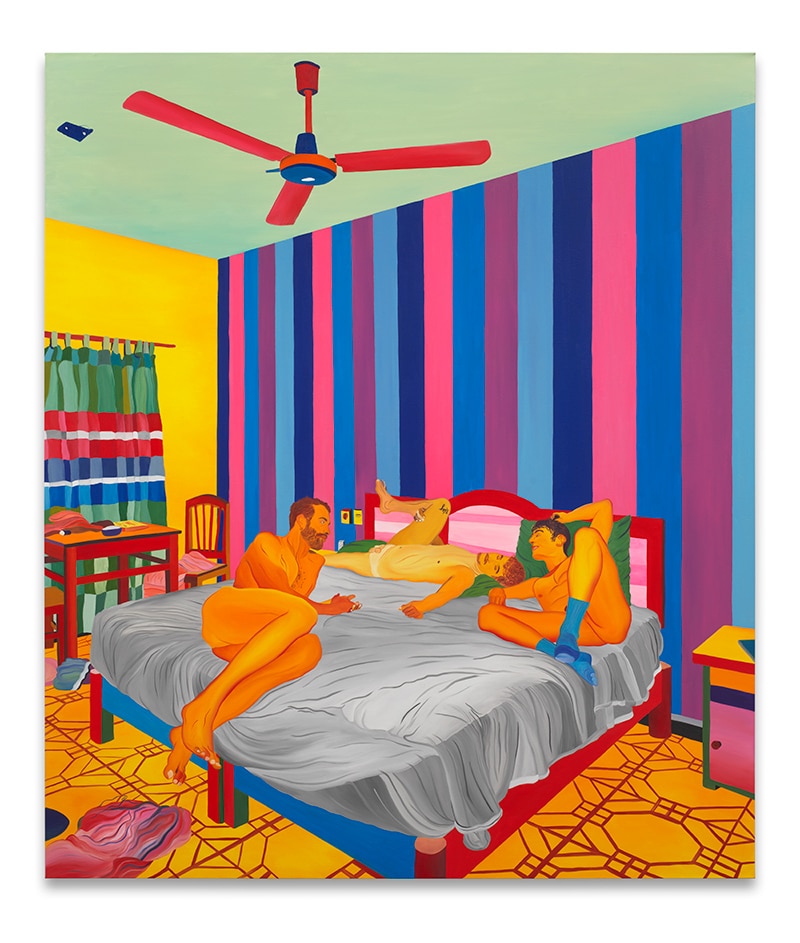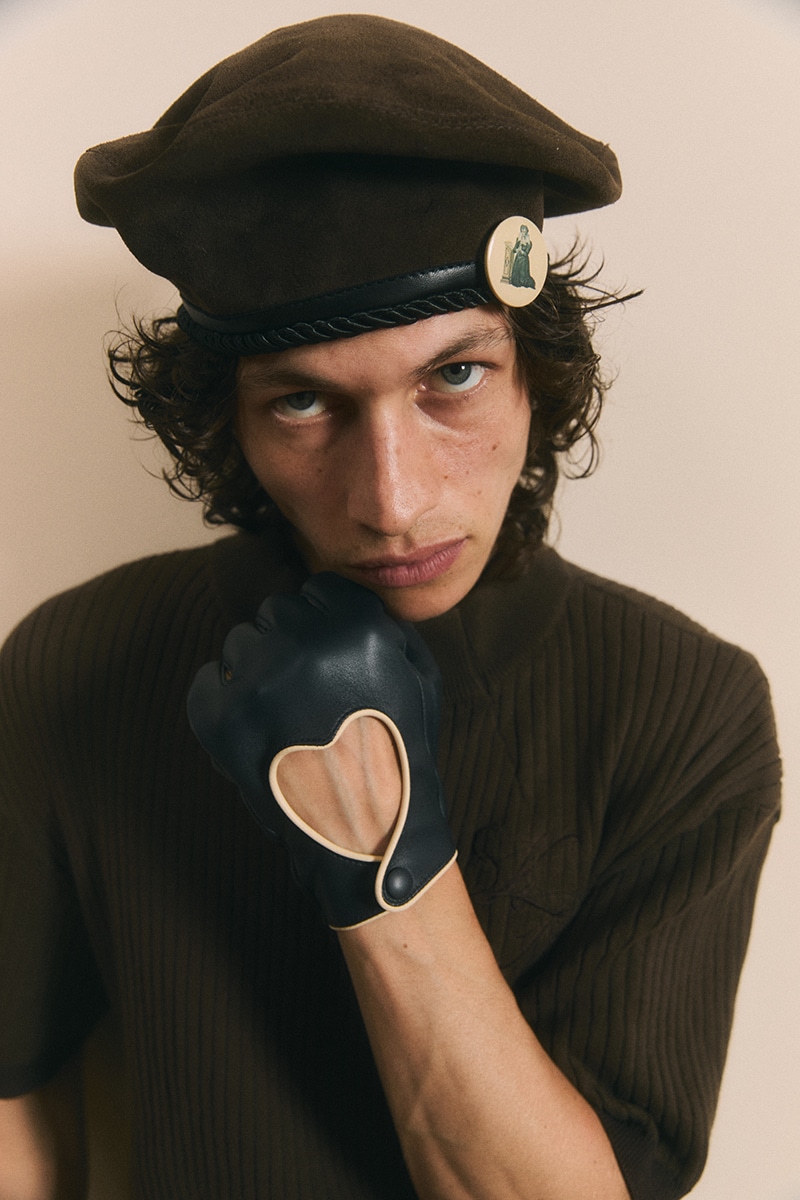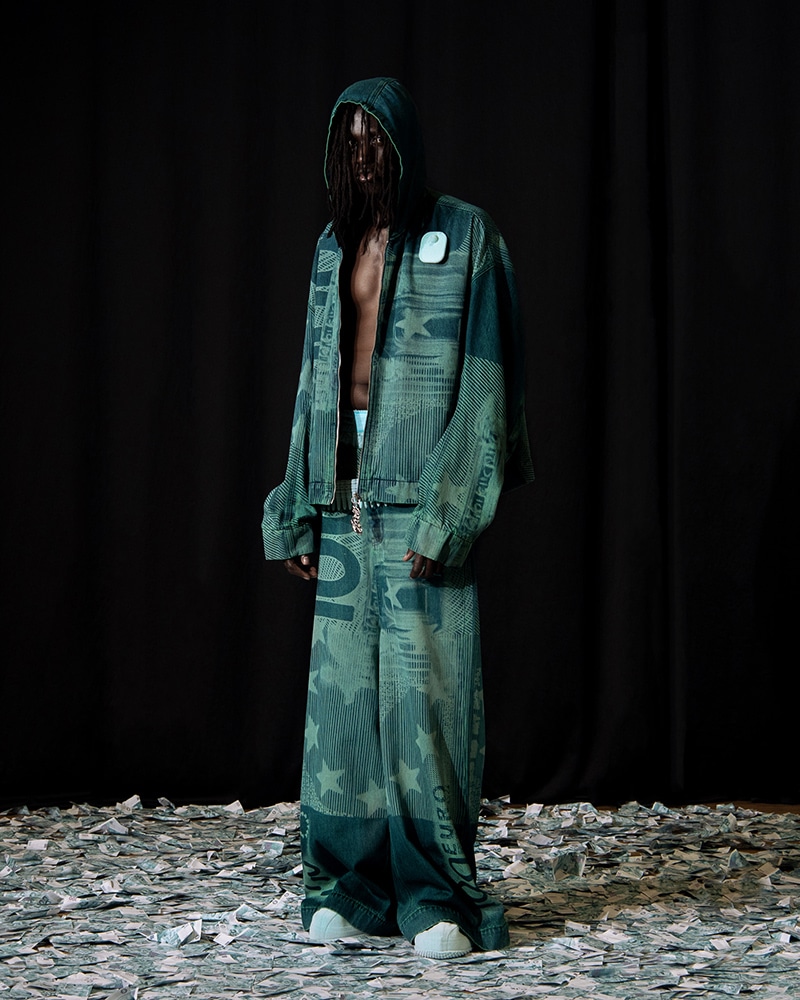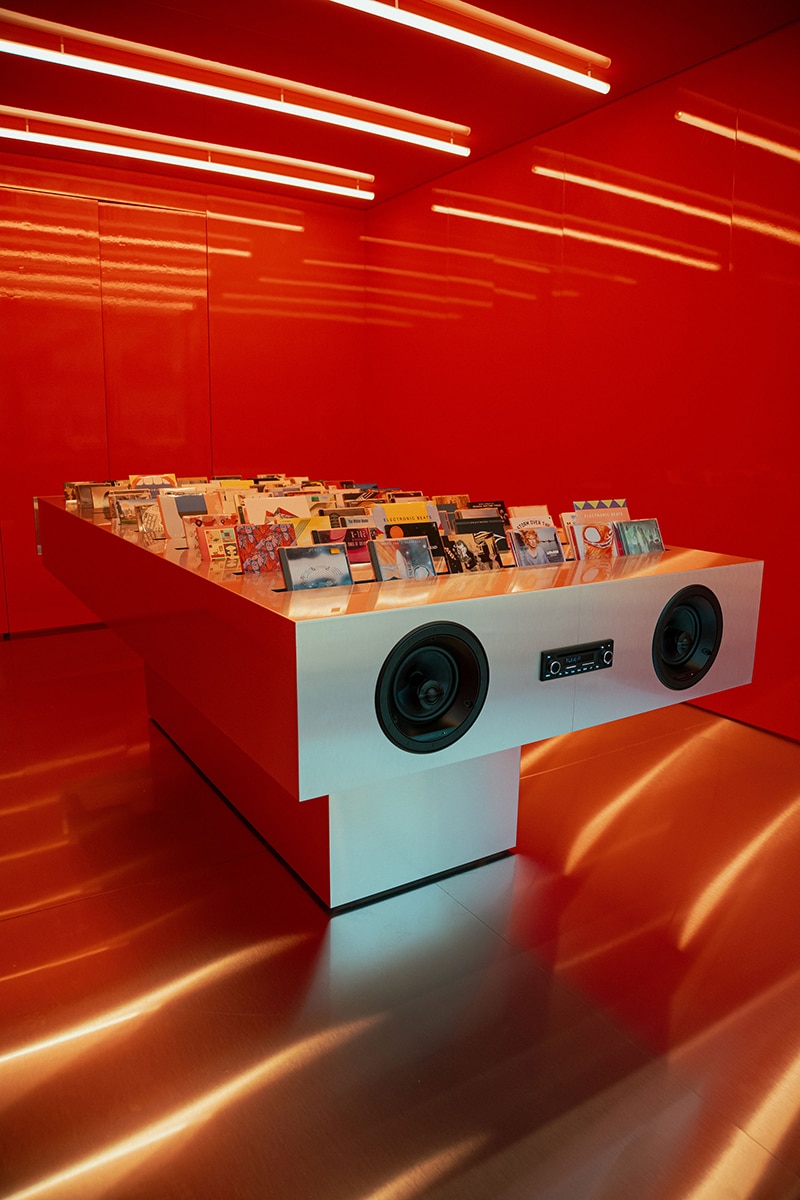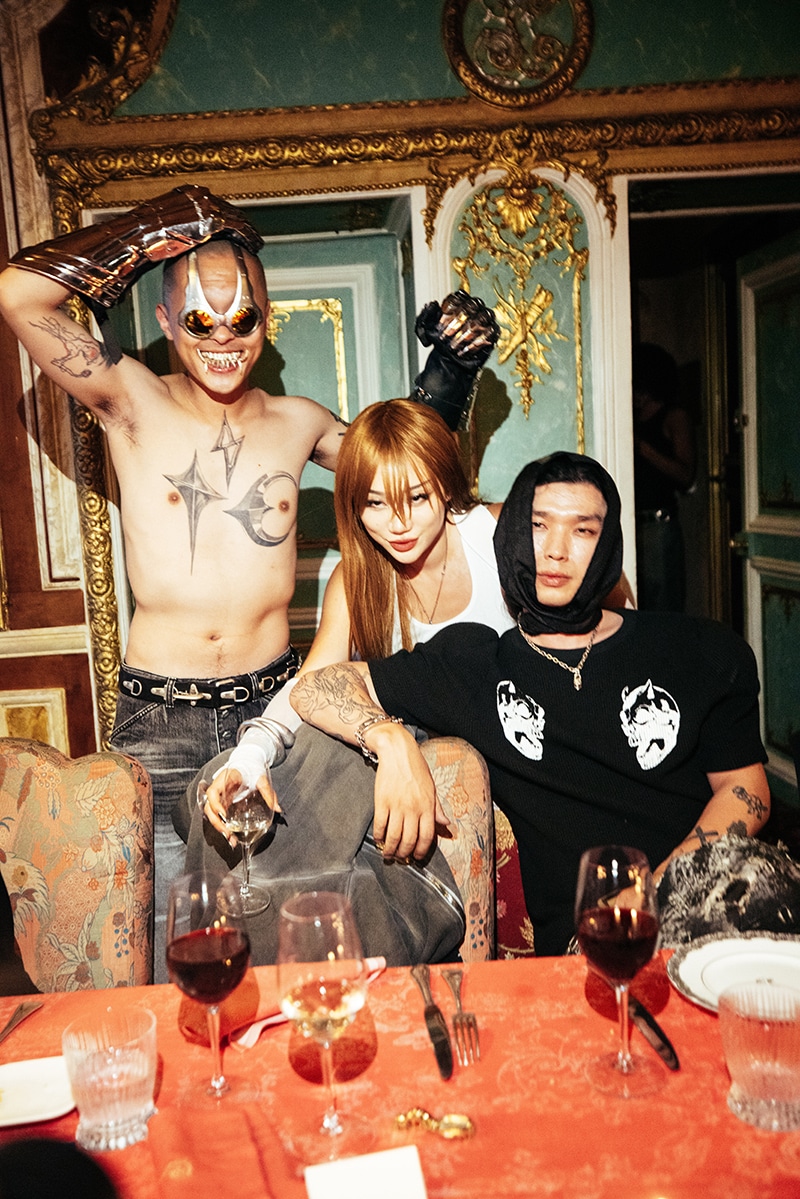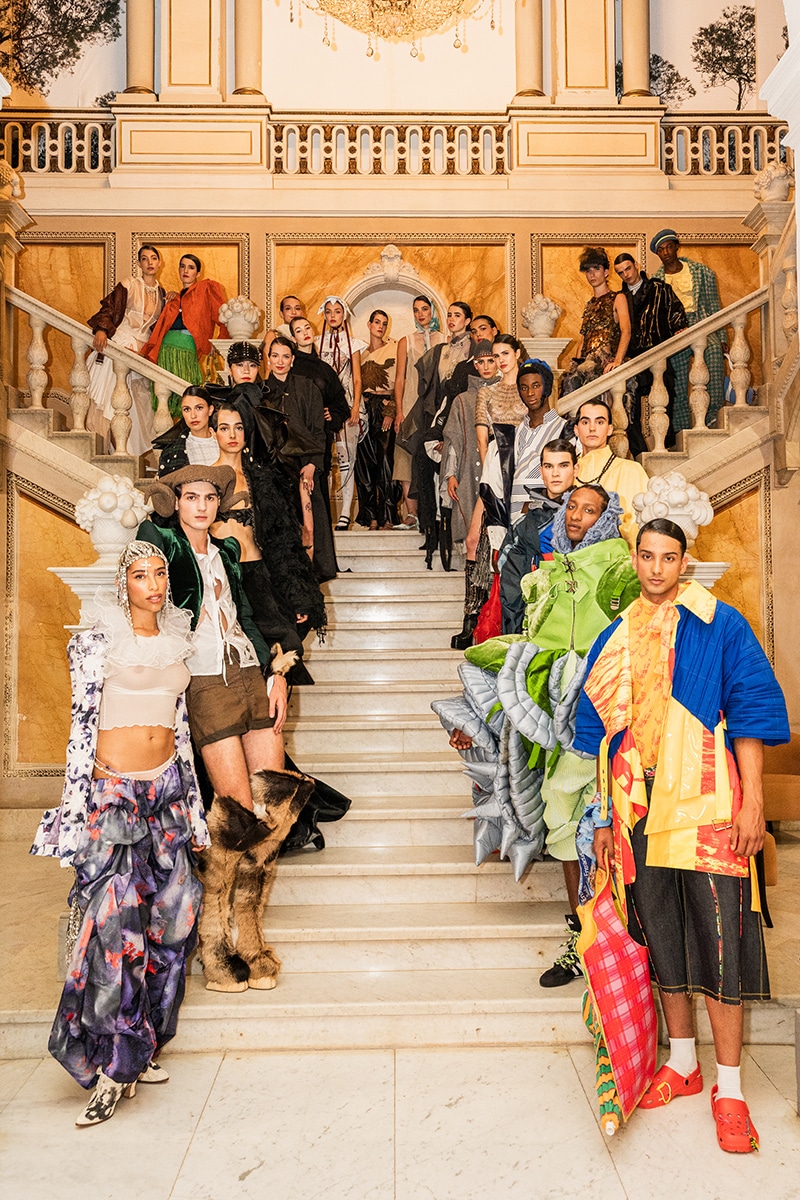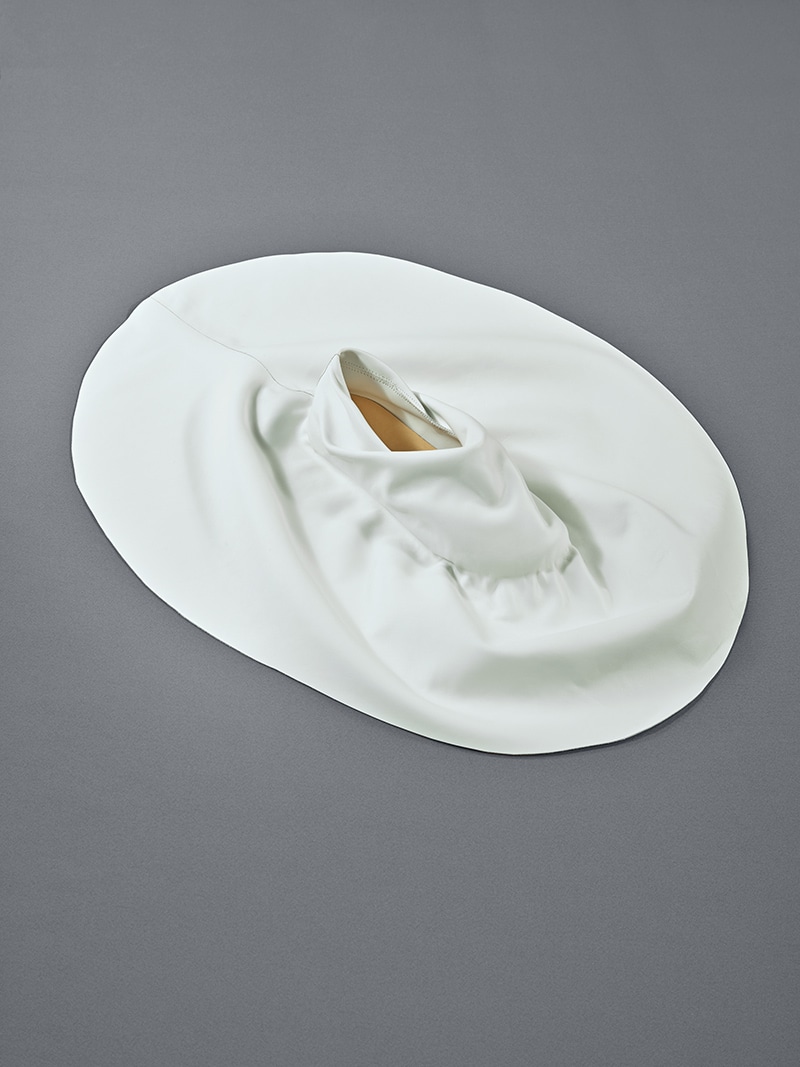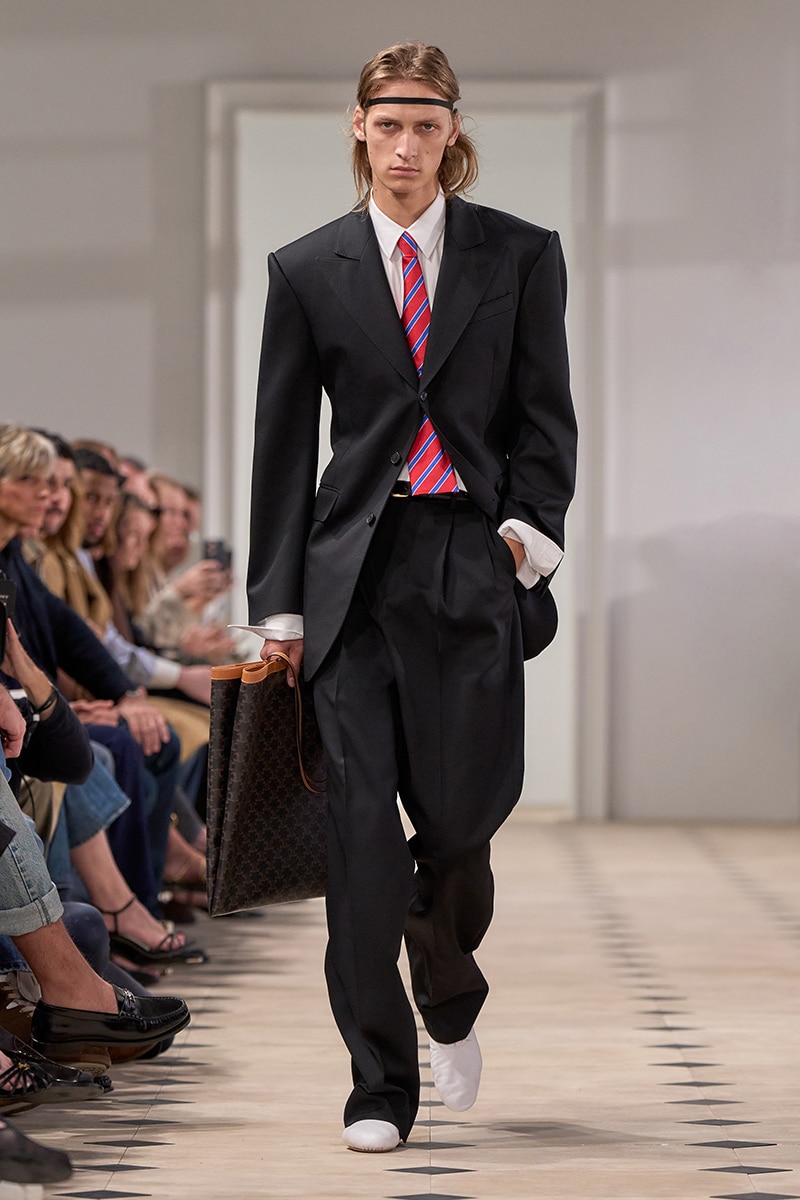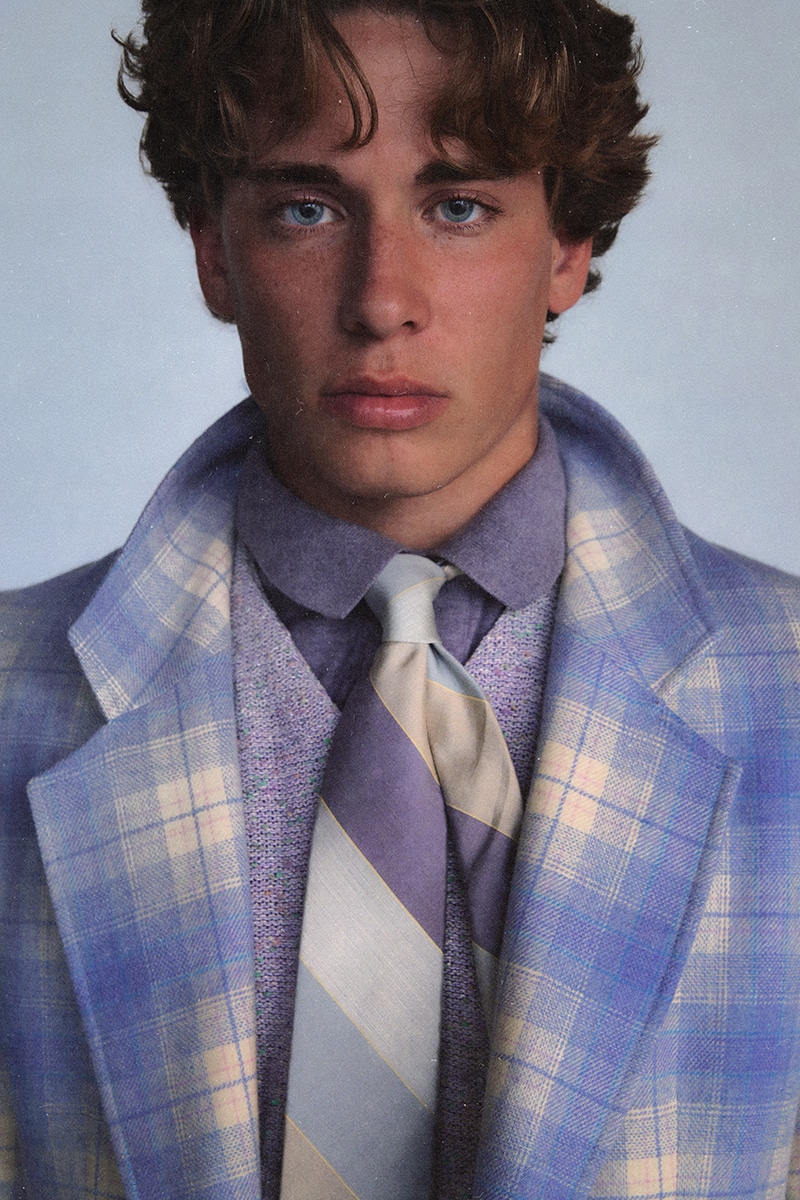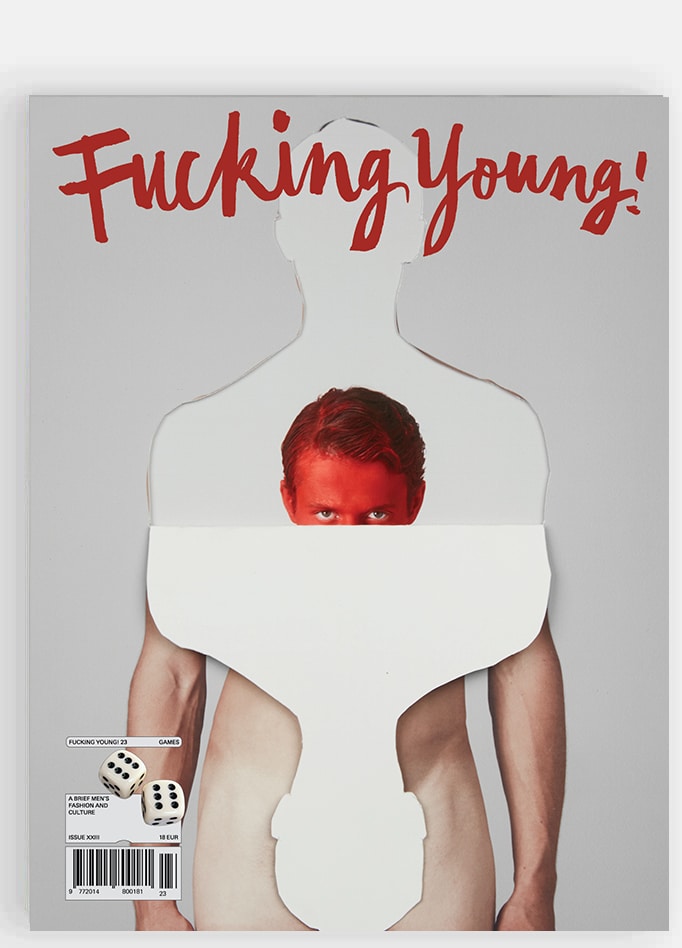João Magalhães‘ latest collection, “O Preguiçoso” (The Lazy One), presented at ModaLisboa, was a stark departure from the traditional fashion show format.

The designer’s new work is a culmination of months of exploration and experimentation, reflecting his growing dissatisfaction with the current state of the fashion industry. Magalhães seeks to challenge the prevailing consumerism and superficiality that often dominate the fashion world, advocating for a more meaningful and sustainable approach.
João “caged himself like a circus animal” in his studio, allowing the public to observe him as he worked. This performance-based installation aimed to foster a deeper connection between his work and the audience, challenging the perception of fashion as a mere commodity and encouraging viewers to engage with the creative process behind each piece. This is a deliberate statement against the unsustainable nature of the fashion industry. He believes the constant cycle of fashion weeks, often resulting in minimal sales and limited international exposure, is both constrictive and harmful.
As one of the few truly exciting talents in the Portuguese fashion scene, João Magalhães’ work consistently challenges prevailing norms and serves as a reminder of the importance of authenticity.

I had a conversation with him before his presentation and here’s what he told me:
Hi João! Can you elaborate on the concept behind the performance-based installation you are doing at ModaLisboa? What inspired you?
Everything and nothing. As summer ran its course I could feel fashion week drawing closer, which these days fills me with apprehension more than excitement. Although I know that I always manage to pull it off and that I can do anything I put my mind to, coming up with the money, pulling the strings, and asking for favors… is a draining task. Especially in Portugal where 0 sales are guaranteed and a few are unlikely.
So I decided to flip it on its head. No models, no makeup, no hair, and to just make a statement. Fashion Design (and Fashion Week) is a subsidized vanity project that exists solely to dress local celebrities and influencers for events, resulting in minimal sales. The Portuguese public has very little understanding of what fashion is and what it is for, so I decided to write all of this out in big letters and put myself in a cage for a couple of hours so people could see me at work, see a little of the process that goes into creating a concept before I cut a sleeve or sew a button. Because fashion is about a lot more than clothes, fashion has nothing to do with looking sexy or expensive. Fashion is politics.

The theme for this season is “O Preguiçoso” (The Lazy One). Can you tell us why?
Funnily enough, it’s because you called me “preguiçoso” (lazy) at a party once. I’ve never been one to show off how hard I’m working, or how many other jobs and projects I’m constantly working on to be able to afford to do fashion shows in a country where the vast majority of people have neither the budget nor inclination to buy anything aside from fast fashion. So I decided to give people a hint of what I get up to on a daily, and most importantly, as a statement, I decided to do it all with my own hands. Every poster, every drawing, every flower installation, the whole design of the space and event, the concept, the design of the cake, I did it myself.
Hehehe. I apologize for calling you lazy. Your explanation makes it clear that you put in a lot of hard work which, to be honest, I already knew. I was just teasing you. I admire your dedication to your craft. I remember you also mentioned your growing dissatisfaction with the current state of the fashion industry. What specific aspects do you find most problematic?
Well, to be honest, fashion now has been commodified to a point where it has become a never-ending carousel of consumerism. Every collection looks the same, all the major houses are controlled by two or three conglomerates who demand ever higher profits, and it is very difficult for emerging brands to gain traction in a highly saturated market where the big players have seemingly limitless funds.
How do you define “meaningful fashion”? What are the key elements that you believe should be present in a fashion collection to make it truly meaningful?
Fashion is a vehicle of self-expression. You can tell (nearly) everything about someone from what they wear. Even people who try their best to blend in are, at the very least, communicating this, that they do not want to be seen, that they want to remain a mystery… for example, one of the great ironies I find is that me, who people see as someone very extravagant in their clothing… I rarely take longer than 15 minutes to get dressed for any kind of event. I have friends whose clothes you wouldn’t look at twice, who take 2/3 hours!
For a collection, for it to be meaningful, it has to communicate an ideal. Some kind of commentary on society, or something happening in the world. For example, now that the world seems to be more and more unstable, my mind immediately retreats into fantasy, just like it did during covid. Fashion can be escapism, fashion can throw reality in your face, but above all, fashion has to SAY something.

Can you discuss your ongoing exploration of new mediums, such as illustrations, and how they complement your fashion design work?
Well, actually illustration has been with me since day one. I’ve always doodled, even since childhood. In the past few years, I’ve taken it more and more seriously, and have also found that it calms me down when I am anxious. As I started showing my work on social media, I realized that it could not only be a complement to my work, but a whole new asset! Illustration also has the asset of being mobile. I can do it anywhere. Which is great for someone who loves to travel like I do.
You decided to present only four new pieces at ModaLisboa this season. Can you explain the reasoning behind this choice and how it aligns with your overall vision for the fashion industry?
I’ve realized that there’s a lack of a culture of fashion in Portugal. Almost all the designers give up after a few years because there is simply no internal market in Portugal for fashion. You are sold the message that you have to keep producing, when in fact there is no system in place to help you become a profitable business. Most designers who show here have other income streams or have to put sales before anything else, to the detriment of their concept or their message. I did not become a designer to print witty T-shirts or pander to local celebrities. So I decided to flip this on its head. I made four hand-illustrated sweaters as a kind of provocation. No one here cares if something is done by hand, if it’s beaded, if it’s silk, or if it’s polyester, so I decided to make something that would say something to those who pay attention, and mean nothing to those who don’t.

What specific measures do you think could be implemented to support emerging designers and create a more sustainable fashion ecosystem?
I think it’s a complex situation that starts with the perilously low rates of cultural consumerism in Portugal. The vast majority of people in Portugal don’t understand fashion, and, worse of all, can’t afford it. The average wage here is the price of a jacket from a mid-range international brand. The only solution is to make your brand international, but competition is fierce and there aren’t many tools available from the state to get you on your way.
How do you hope to foster a deeper connection between your work and the audience by presenting your collection in a more intimate and interactive setting?
By bringing people into my studio, I wanted people to see me close up, at work, and to try and see what goes on in my brain beyond clothes and catwalks. So much of me goes into everything I do that I have more than once made myself physically sick through the effort of bringing everything together. I want people to understand that fashion isn’t about partying and skinny girls in frocks and looking hot in selfies and waving around designer handbags. Fashion is about communication, fashion is about ideas, fashion is about craft, and fashion is (or can be) art. Fashion can unite people, fashion can be about protest. Fashion can be about subjugation or liberation. Fashion is NOT about Birkins and f*cking love bracelets.

What are your primary sources of inspiration for your work? Do you draw from specific cultural references, historical periods, or personal experiences?
All of the above. It starts as a feeling I get from say… looking at a building, then I find that same feeling in a passage in a book, then again in a song, then again in a costume from the XVI century, then in some sci-fi movie, then the memory of that time I made out with someone on the beach on a full moon… and it all ends up in a big soup which (hopefully) has some sort of aesthetic and conceptual coherence.
Do you have any specific goals or aspirations for the coming years?
To make money.

João invites you to support not only his work but also the rest of the emerging Portuguese fashion community. By purchasing a small artwork or even acquiring pieces from his past collections, you can help ensure that truly exciting and authentic artists and designers can continue to pursue their passions without compromising their vision. Let’s collectively support the future of Portuguese fashion and celebrate the creativity and resilience of emerging talent.
